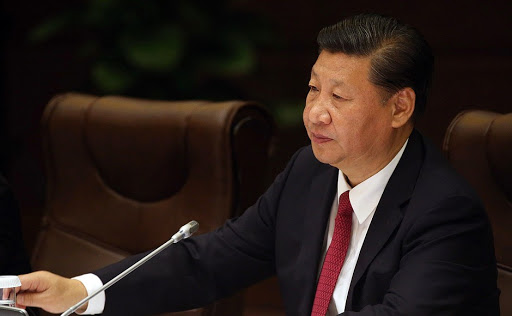
Dressed in full army uniform, President Xi called on military personnel to “focus all its energy on fighting” according to reports from a Chinese Communist party mouthpiece.
President Xi made these comments when addressing the People’s Liberation Army during a recent visit to a command centre. “Focus all [your] energy on fighting, work hard on fighting and improve [your] capability to win,” the instructed army officials. He is said to have gone on to urge the cohort to “resolutely defend national sovereignty and national security”, referring to China’s security situation as “unstable and uncertain”.
The President has urged the army to prepare itself before. He conveyed similar sentiments following his appointment in 2013 and again in 2017. However, political analysts have noted an escalation in his language during this recent visit. According to a senior fellow at the Washington-based Jamestown Foundation, Willy Lam, “He is sending a message to the United States and Taiwan,”.
Taiwan appears to sit at the centre of this brewing storm. President Xi (who is seen as the strongest party leader in years) has long made his desire to ‘rejuvenate’ China known. Part of these rejuvenation plans appears to involve ‘reunification’ with Taiwan.
Taiwan’s status has been ambiguous for decades. It is not recognised as an independent state. However, it is not part of the People’s Republic of China. The protection given to Taiwan thus far is of a tenuous construction of agreements by which, as long as Taiwan does not try to declare independence, China will not invade. As part of this agreement, the U.S. is expected to be non-committal regarding which side it would if war breaks out.
In recent years China has amplified its aggression towards Taiwan. From illegally claiming the Taiwan Strait as Chinese territory to encircling the island with warships, in a manoeuvre seen as hinting at future blockades.
In the past six years, the USA has sold more weapons to Taiwan than during President Obama’s eight years in office. Not to mention, recent visits made by a number of high-ranking U.S. officials to Taiwan have further provoked China.
Most significant is the pro-Taiwan act that U.S. lawmakers from both sides of the aisle are attempting to pass. U.S. lawmakers see this act as a necessary step to support Taiwan. However, Beijing views this act as a threat.
In this act, the U.S. has agreed to designate Taiwan as a ‘Major Non-NATO Ally’ and provide almost $4.5 billion in security support to Taiwan. The U.S. will, therefore, then, be obliged to facilitate Taiwan’s introduction to international organisations. Further, the U.S. will be required to formulate a sanctions program to “deter further PRC aggression against Taiwan.”
Amidst the uncertainty, Taiwan prepares to be invaded. “The purpose is to make China believe that if you want to invade Taiwan, you will suffer huge losses,” said Admiral Lee Hsi-ming. “And if you still invade Taiwan, you will not be able to succeed.”
As political tensions mount, experts warn of the consequences should a war break out. In the words of Vice President Gao, of the research group Centre for China and Globalization, “In a nuclear age, if one country tries to attack another, there will be mutually assured destruction; that country will be destroyed at the same time,”.
